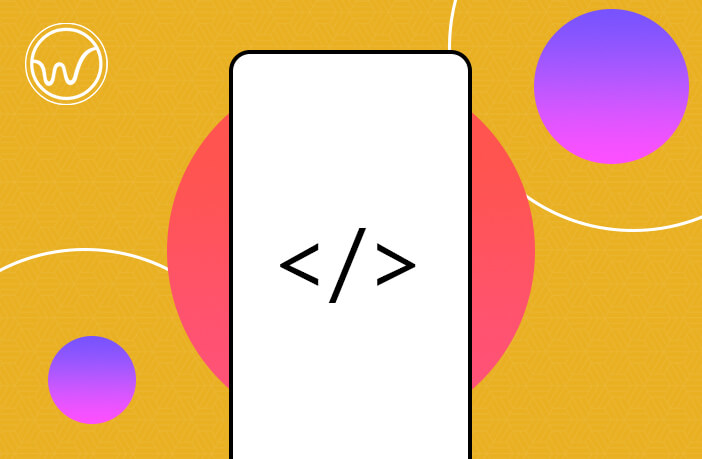Developing mobile apps cross-platform: Eight must-know frameworks!

All around the world, mobile technology is reaching a tipping point. This is owing to the rapid development of mobile apps. It allows you to carry out your daily activities with ease and diligence. Through apps, it’s easy to find out about upcoming events, track your food orders, window shop in e-commerce, etc.
Currently, developers are looking for excellent app development tools in an extremely competitive market, while businesses are seeking ways to improve their bottom line. Whether startups or multinational corporations, applications are in some way enhancing business growth and assisting them in several ways.
Mobile app developers tend to focus more on cross-platform apps than other types of apps in the present day. Clearly defining cross-platform development is a prerequisite before discussing the best tools for cross-platform app development.
What is Cross-Platform Development?
Cross-platform mobile app development – is one of the most sought-after terms in the mobile app industry. Everyone likes to code and customize the mobile app. But keeping the same time and third-party the same code. Yes, writing once and running everywhere is becoming not just the trend but the demand indeed and in need of today’s world.
Cross-platform mobile apps are an all-new form of mobility. Technology means there should not be barriers resisting the mobility and power of making codes flexible as possible.
In terms of building cross-platform mobile apps, the following five tools are imperative:
1. Xamarin
Xamarin lets you build mobile apps for iOS, Windows, and Android with an open-source platform. Currently, it is the fifth most popular cross-platform mobile app development tool. This Microsoft-backed application supports a C# shared code base and is well suited to developers using Microsoft’s Dot Net platform. This application assists with high-performance app development because it runs quickly and comfortably. There is also a feature called test cloud that enhances automatic testing with 100% code sensitivities.
2. React Native
React Native is another popular cross-platform framework that offers the same code to develop mobile apps for any platform. The mobile app development on this platform is really quick and easy for businesses to launch the app on multiple platforms without compromising the quality. It is compatible with third-party plugins that it uses less space in memory.
3. Native Script
NativeScript believes in liberating developers by enabling them to use platform APIs directly without giving up JavaScript. It is designed to be the tool of choice for developing cross-platform mobile apps using JavaScript in a framework-agnostic team.
No matter what JavaScript framework you use – Vue, React, Svelte, Angular, or Vanilla JavaScript – NativeScript has you covered!
Essentially, NativeScript is a framework for building native mobile applications. In general, it renders UIs using JavaScript and CSS to ensure a native-like feel.
4. Flutter
Flutter is a cross-platform app framework developed by Google. Businesses can get two mobile apps for the Android or iOS platforms and use the tool without investing extra time and money.
Designers don’t need to manually update the UI content since it is a reactive framework. A unique feature of this software is that the developers can check any changes made to the code by hot reloading the page.
5. Node.JS
A Node.JS is based on a cross-platform app framework, it is built on the V8 platform. From a highly specialized language, JavaScript is transformed into a general-purpose language. By granting an open-source environment, it allows developers to build scalable and server-side network applications.
The V8 engine compiles JavaScript into machine code instead of converting it into byte code, which enhances Nod.JS’s speed. There are many different JavaScript modules in the framework that can handle many concurrent connections at once. Mobile apps that are built using this cross-platform framework are extremely responsive.
6. Ionic
Ionic is an open-source cross-platform framework intended for the development of hybrid mobile apps. It offers users the choice of Angular or React as user interface frameworks. With Ionic, designers can also create engaging user interfaces and add certain features that make the app more user-friendly. Developers can easily build high-performing iOS and Android apps using Ionic, thanks to its strong community support.
7. PhoneGap
The PhoneGap tool from Adobe can be used to create mobile apps that use languages like HTML5, CSS, and JavaScript. The framework also allows third-party tools access in addition to numerous plugins. There are some mobile phone features such as a camera, contacts, and call logs that are supported by the app.
8. Corona SDK
Corona is a free cross-platform framework that helps developers create gaming apps for mobile phones, desktops, and other devices with excellent graphics. It is easy to implement and is compatible to run apps on various devices with a single code base. The toolset need not be maintained as Corona offers an instant view of Lua codes for developers through the built-in Corona simulator.
In a nutshell
The cross-platform app development tools with extensive features and benefits like saving app development cost, time, and market time, numerous enterprises and startups are choosing this framework for their app development projects. If you have any complex app development project requirements using the latest technical features, it is likely to hire a Mobile app development company for further assistance. Businesses need to take advantage of cross-platform app development tools for they focus on the target audience and there is strict competition out there.
From the above top 8 list, you may find one that matches all your mobile app requirements. It is easy to choose the best. Choose wisely among the top ones or consult expert mobile app developers. Still, confused? Then just drop a line and we will be back within 24hrs of business hours.
















